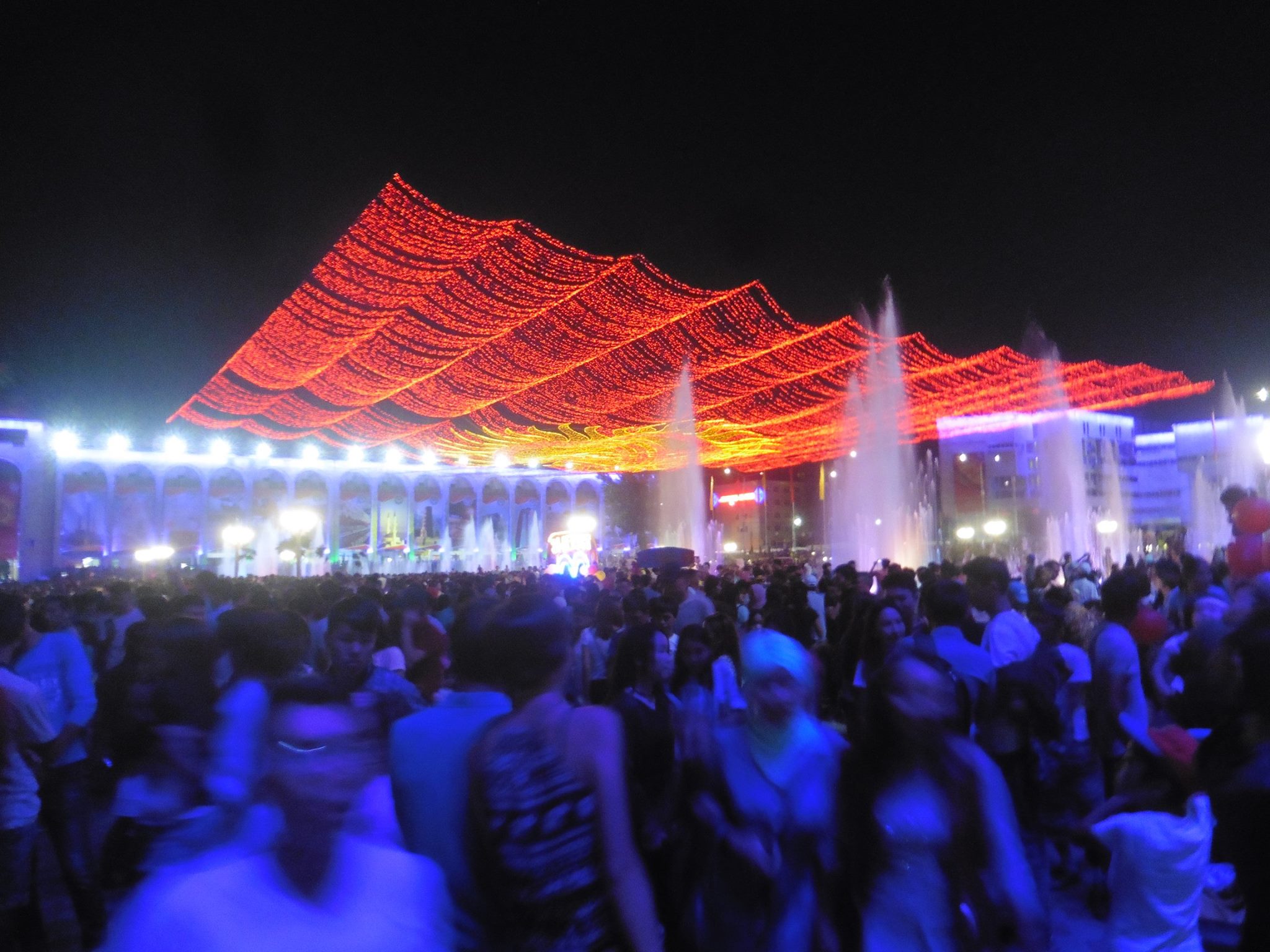Like most of their neighbours’ flags, the Kyrgyz didn’t just go for a basic tri colour or something. In fact, this is the only flag in the world that has a representation of a yurt on it. Yes, another flag with the only something in the world – this is a common theme in Central Asia.
The yellow circle with a cross in the centre of the flag is in fact the shape that is found at the top of every yurt, called a tunduk, and is iconic in the design of them. This isn’t the only place in Kyrgyzstan that you’ll see this design either – people have them built into their fences, painted on walls, used as logos for business, and much more.
Yurts are somewhere between permanent tents and temporary houses, and are the homes that nomadic people, of which there are still many in Kyrgyzstan, live. They are made by draping layers and layers of hand-made felt over a wooden frame, forming a sort of tee-pee shape. They're really easy to assemble and disassemble (within the context of them being houses) and are literally picked up and moved when need be. In the context of a tent though they’re pretty time consuming and difficult to put up!
The sunrays around the tunduk in the centre aren’t just any old sunrays either – there are specifically 40 of them, representing the 40 tribes that were united by their national hero, Manas, to fight against Genghis Khan and the Mongols.
This flag wasn’t adopted until seven months after independence was declared in 1991 though, and until then they were still using the Soviet flag which was adopted in 1952. The Kyrgyz SSR’s flag was fairly typical of a Soviet flag with the standard hammer and sickle and red star on a red background. The distinguishing design of this flag was the blue and white stripes through the centre. Prior to this flag though earlier designs were simply the name of the country, written in a variety of languages including Kyrgyz, Uzbek and Russian, on a plain red background. That was before flags meant all that they do today!
In recent years there have been discussions around changing the modern Kyrgyz flag, with minority groups such as Uzbeks, Dungans, Uighurs and Tatars feeling under-represented by the very ethnically-Kyrgyz orientated flag. Especially those from ethnic groups that would have been on the other side of the Manas vs. Genghis Khan battles. Some people are also unhappy with the red background, concerned that it’s a remnant of the country’s communist past.


